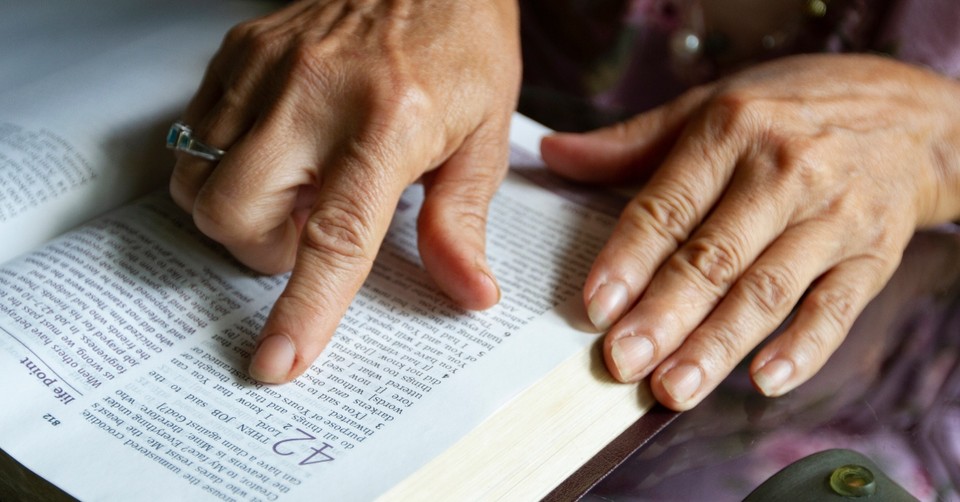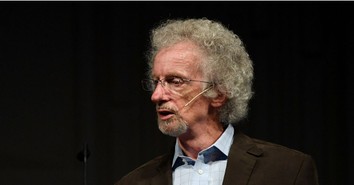Why Is the Widow of Zarephath Important in the Bible?

Scripture is filled with accounts of amazing people and the ways in which God works through their lives. Here we see the importance of a widow in the ministry of Elijah the prophet and how her faith became a model for us. She would move from a place of hopelessness to a place of belief, seeing multiple miracles in her own life.
A Story of Cross-Cultural Faith
“Go at once to Zarephath in the region of Sidon and stay there. I have directed a widow there to supply you with food.” - 1 Kings 17:9
Where is Zarephath anyway? Zarephath is an ancient city located on the Mediterranean Sea in present-day Lebanon, between the cities of Tyre and Sidon. On today’s map, the modern city of Sarafand is near the ancient and similar-sounding Zarephath, while the cities of Tyre and Sidon continue to exist and thrive. Zarephath was a coastal city well outside the boundaries of Israel, and it is interesting that this is where Israel’s great prophet would be led.
A Story of Obedience
“For the jar of flour was not used up and the jug of oil did not run dry, in keeping with the word of the LORD spoken by Elijah.” - 1 Kings 17:16
Elijah was a messenger with an unpopular message. He had gone to the King of Israel to share the message that as a consequence of Israel’s sin, there would be no rain for years, except at Elijah’s word. Not days. Not weeks. Years.
Needless to say, King Ahab was not happy with this message or this prophet. Yet even as the bearer of this message, Elijah himself was not immune, and he would also suffer from this drought. God initially sends him to a remote brook to drink water, where he is fed by ravens bringing food. When the brook inevitably dried up from lack of rain, God directed him to Zarephath.
Elijah’s response to these commands from God is so important! When directed to go live by a brook, “he did what the LORD had told him” (1 Kings 17:5), and then sent to Zarephath, “he went to Zarephath” (1 Kings 17:10). Elijah’s obedience to strange directions from God was key to God’s plan of restoration and healing. May we have this same kind of faith! In troubled situations, may we look to God as our provider and follow his directions for our life, wherever they may take us.
A Story of Provision
“... I am gathering a few sticks to take home and make a meal for myself and my son, that we may eat it—and die.” - 1 Kings 17:12
But back to the lady in Zarephath. While all this is happening in the life of Elijah, the unnamed widow in the town of Zarephath has no idea that her life is about to play a crucial part in God’s eternal plan for humanity. In fact, she has no plans for the future whatsoever. She is preparing to eat a final meal with her son and then die.
This is how hopeless she really is. This is a woman who has given up altogether. She is on the verge of starvation and has no hope remaining beyond one final meal. She has nothing to give anyone, not even herself. In such a desperate condition, this is the last person we could expect to provide help to one in need, especially a prophet of God.
Regardless, this is exactly the person God has in mind to help Elijah. When Elijah makes his journey to Zarephath and finds this woman, he asks her for bread and water. To any observer, she would have been the last person to ask to help. Elijah should have gone to someone who wasn’t about to starve to death, right? But this is about faith and obedience.
Elijah presented the woman with a test of faith, saying, “don’t be afraid. Go home and do as you have said. But first make a small loaf of bread for me from what you have and bring it to me, and then make something for yourself and your son. For this is what the LORD, the God of Israel, says: ‘The jar of flour will not be used up and the jug of oil will not run dry until the day the LORD sends rain on the land’” (vv.13-14).
Consider the situation: this wanted fugitive from another country was asking a starving woman to feed him first, promising that God would provide for her after. Her faith is astonishing, “she went away and did as Elijah had told her”
The result? “So there was food every day for Elijah and for the woman and her family” (v.15). Knowing that she had nothing for her family, much less this stranger, she gave it away regardless. Her example of faith and hospitality is enormous and another example of doing what God asks, even though it makes no sense! God would continue to provide for this woman of faith, her son, and the prophet.
A Story of Resurrection
“The LORD heard Elijah’s cry, and the boy’s life returned to him, and he lived.” - 1 Kings 17:22
Sometime after this, the woman’s son became sick and died. Even in this moment, we see a precursor to the resurrection power that is ours in Christ and the power of God working through his servant Elijah. We see this in 1 Kings 17:19-24:
“Give me your son,” Elijah replied. He took him from her arms, carried him to the upper room where he was staying, and laid him on his bed. Then he cried out to the LORD, “LORD my God, have you brought tragedy even on this widow I am staying with, by causing her son to die?” Then he stretched himself out on the boy three times and cried out to the LORD, “LORD my God, let this boy’s life return to him!” The LORD heard Elijah’s cry, and the boy’s life returned to him, and he lived. Elijah picked up the child and carried him down from the room into the house. He gave him to his mother and said, “Look, your son is alive!” Then the woman said to Elijah, “Now I know that you are a man of God and that the word of the LORD from your mouth is the truth.”
There is no other power that can raise the dead outside the power of God. This moment from Scripture serves as an example of the power over death that belongs to God alone. We can join in this story and this power through Christ’s resurrection from the grave.
A Story Told by Jesus
“I assure you that there were many widows in Israel in Elijah’s time, when the sky was shut for three and a half years and there was a severe famine throughout the land. Yet Elijah was not sent to any of them, but to a widow in Zarephath in the region of Sidon.” - Luke 4:25-26
Let’s fast forward several hundred years. When Jesus was met with disbelief in his hometown, he referenced the story of this woman as an example of one who truly believes. The people who had known him for years were offended that he would counter their disbelief with such a story. Yet in doing so, Jesus establishes the widow of Zarephath as a forerunner to all who would believe.
In another situation found in John 4:22, we see Jesus having a Gospel conversation with another woman who is not Jewish, the Samaritan woman at the well. He tells her that although salvation is ‘from the Jews’, it is not for the Jews alone but for all who would accept it.
The Widow of Zarephath stands as evidence of this, and Jesus gives her honor in this. We do not know the name of this Widow of Zarephath, but story, her deeds, and her faith, cement her place in history as an example of faith, and she is certainly worthy of our study and attention.
Photo credit: ©Playbackmedia.com/©Sparrowstock
Jason Soroski is a homeschool dad and member of the worship team at matthias lot church in St. Charles, MO. He spends his free time hanging out with his family, exploring new places, and writing about the experiences. Connect on Facebook or at JasonSoroski.net.
Originally published September 12, 2022.







